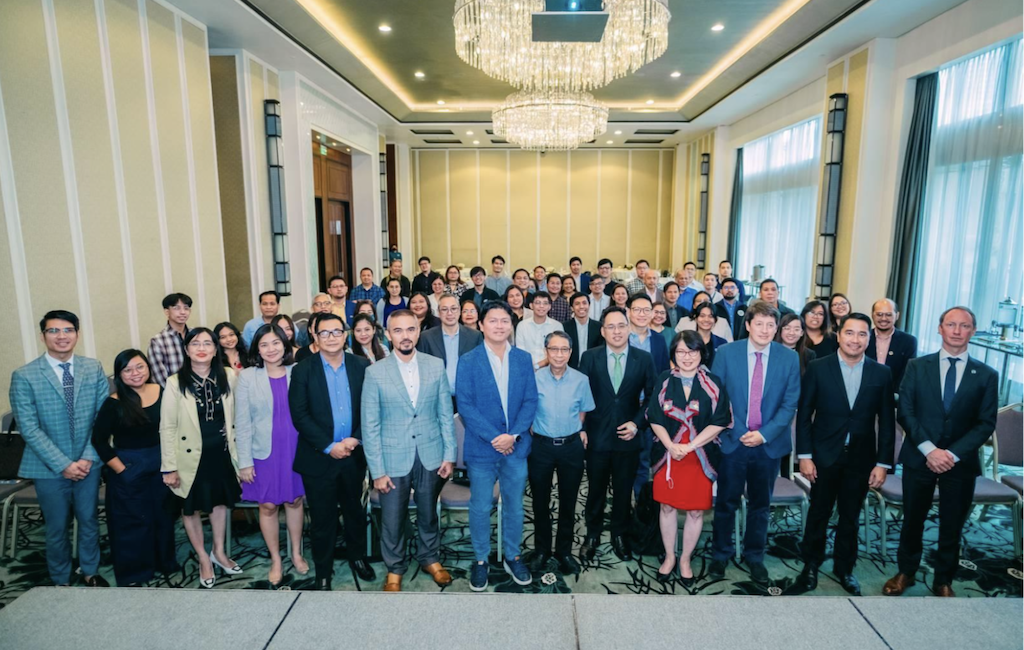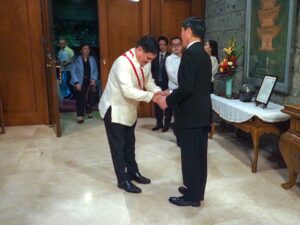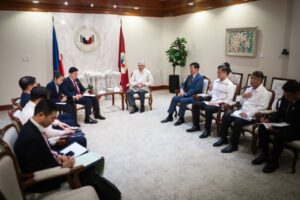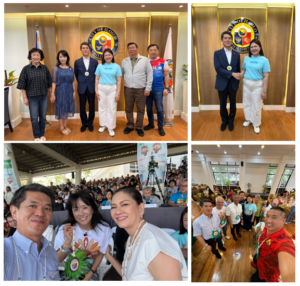
The United Nations Industrial Development Organization (UNIDO) has successfully spearheaded the Policy Forum on the Advancement of Industry 4.0 and Digital Transformation of Industries in the Philippines on July 21, 2023 at the Makati Diamond Residences.
In partnership with the Department of Trade and Industry Competitiveness and Innovation Group (DTI-CIG) and with support from the Korean International Cooperation Agency (KOICA), the Forum gathered around 50 innovation leaders from the government, private sector, academe, and development partners, in an open dialogue with renowned industry experts.
DTI CIG Undersecretary Rafaelita M. Aldaba, underscored the Philippines’ exceptional proficiency in servicification and highlighted the potential of Industry 4.0 (I4.0) technologies in further enhancing this aspect. She emphasized, “We can link our services with manufacturing, agriculture, and others, especially with the presence of these new technologies which would really require a lot of digital skills, software applications development, etc., these are things and areas that the Philippines has a comparative advantage.”
Highlighting the profound impact of artificial Intelligence (AI), UNILAB, Inc. Assistant Vice President for Manufacturing Operations Services and Technology, Arnel Cabungcal recounted, “During the pandemic, through an emergency use authorization, the standard 8-year approval process of the vaccine was reduced to only 8 months, with the aid of AI.”
Likewise, Ionics-EMS Inc. Chief Operating Officer Jay Chavez recounted his own experience of adopting smart manufacturing in the company’s operations and its impact on job placements. “With smart manufacturing increasing our production, we had to hire more people to do higher value tasks while remaining cost-effective,” he explained.
For his part, Globe Telecom, Inc. Senior Vice President for Regulatory Development and Strategy, Emmanuel Lazaro Estrada stressed, “Policies should be practical and human-centered.”
UNIDO Chief of the Capacity Development and Policy Advice Unit, Anders Isaksson, supported this idea and reiterated the call for a needs-based approach. “Knowing what needs to be done is very important for defining policy areas and reducing policy uncertainties,” he mentioned, while also emphasizing the connection running from innovation to I4.0 to productivity growth and welfare enhancement.
“The successful adoption of I4.0 banks on the implementation of the right policy mix. This mix should not only focus on pro-I4.0 policies but also on redistribution and compensation policies at the very design stage to reduce the costs of potential disruption and transition (due to I4.0),” Isaksson added.
Crafting and institutionalizing such policies would require much effort from the government, according to Dr. Jamil Paolo S. Francisco, Asian Institute of Management’s Executive Director for Rizalino S. Navarro Policy Center for Competitiveness. He said, “Government should help individuals, companies, and startups become more agile.”
Supporting this, PLDT Enterprise Vice President and Head for Enterprise Innovation, Business Development, and Consulting & Presales Melvin Jeffrey Chan, zoomed in on the critical role of the National Innovation Council (NIC). He pointed out, “The NIC joined the forces of the brightest minds in the country, whether they are from the public or private sector, to drive things forward through the formulation of policies and building technologies.”
Apart from the panel discussion, the forum also marked the culmination of a week-long workshop held in Pico De Loro, Batangas from July 17-20, which was participated by a roster of innovative policy and thought leaders from select government agencies.
In collaboration with other development partners, the DTI and UNIDO aim to sustain the momentum and ongoing dialogue and remain dedicated to driving sustainable development through innovation. As part of this commitment, the participants will continue to gain practical experience through site visits to leading I4.0 companies, technology clusters, innovation agencies, think tanks, and business associations worldwide in the upcoming phase.


